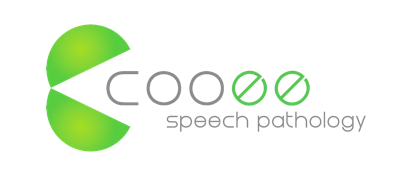Jeans for Genes Day: What is Down Syndrome
Friday the 7th of August is Jeans for Genes Day! A day dedicated to raising awareness about birth defects and childhood genetic disorders, as well as raising money to fund critical research around causes and cures.
The term ‘genetic disorder’ refers to a wide range of conditions that are caused by changes to an individual’s DNA. Genetic disorders can be inherited, and they can also occur ‘out of the blue’.

To help bring awareness to genetic disorders, our North Brisbane Speech Pathologists have written this blog that outlines basic facts about a common genetic disorder, Down Syndrome.
What is Down Syndrome?
Down Syndrome is a genetic condition that occurs from conception. It is caused, in most cases, when each cell in the body has three copies of chromosome 21 instead of the typical two copies.
It is estimated that 1 in every 1100 children born will have Down Syndrome (downsyndrome.org.au).
Each person with Down Syndrome presents with their own unique profile, with individual strengths and weaknesses. In general, individuals with Down Syndrome may have:
- Some level of Intellectual Impairment,
- Characteristic facial appearance – flattened face, upwards slant of the eyes, small ears, short neck,
- Heart defects,
- Low muscle tone or loose joints,
- Smaller physical stature,
- Increased risk of developing a variety of medical conditions,
- Developmental delays,
- Language difficulties,
- Hearing difficulties,
- Poor speech clarity,
- Delayed social skills.
In most cases, medical staff perform detailed prenatal screening, which can detect chromosomal abnormalities and other differences in the mother’s blood – this can determine whether a child will be born with Down Syndrome. In other cases, Down Syndrome will be recognised upon birth of the child, due to characteristic physical features. The child will then be referred for genetic testing and Paediatrician review to confirm the diagnosis.
Individuals with a diagnosis of Down Syndrome should be eligible for the National Disability Insurance Scheme (NDIS). The NDIS can assist the individual and their families by providing funding to access the therapies they need.
Communication skills in children with Down Syndrome
Children with Down Syndrome present with a variety of communication difficulties, with many children presenting as non-verbal in the early years. These difficulties can be observed across: expressive and receptive language skills, speech-sound production, speech clarity, social skills, and literacy.
Early intervention that continues throughout childhood (and sometimes into early adulthood) can significantly improve communication skills.
A Speech Pathologist can support a child with Down Syndrome and their family by:
- Providing periodic assessment to help the child’s family and support team understand the child’s current communication profile, including their strengths and areas for development,
- Provide tailored intervention to the child to support the development of their oral language, speech clarity, social communication, fluency, literacy and feeding skills,
- Liaise with the child’s family, support team and kindy/school to offer strategies that support the child’s communication, participation and learning,
- Provide coaching to the child’s family in the implementation of therapeutic activities/strategies, so families can confidently support their child’s development at home,
- Support the family in accessing AAC (Augmentative and Alternative Communication), to enable communication for children in cases where their verbal communication is unable to meet their communication needs.
What professionals can support a child with Down Syndrome?
Children with Down Syndrome have complex needs that impact upon many areas of their life. Therefore, it’s important to access a full team of professionals to support all aspects of your child’s development. Some of these professionals include, but are not limited to:
- Speech Pathologist: to support communication development across oral language, literacy, speech clarity and social skills, with therapy and parent coaching. The Speech Pathologist can also support the family in accessing and implementing AAC where verbal communication is not effective in meeting the child’s needs. Specially trained speech pathologists can also diagnose and treat swallowing and feeding difficulties.
- Occupational therapist: to support children and the family in developing a range of skills and strategies that enable participation in various activities of daily living, such as: sleeping, eating, playing, dressing, and self-care. OT’s also support the development of fine and gross motor skills, and strategies to help the child remain calm and alert to support learning. OT’s can also support families with applications and access to mobility equipment for access to self-care, daily living, community access and access to AAC.
- Physiotherapist: to support children in developing their muscular strength and flexibility as well as gross motor skills, allowing them to move and walk more freely.
- Paediatrician: to co-ordinate and manage the child’s overall development, as well provide routine care throughout their childhood. Paediatricians are often instrumental in making relevant referrals to support the child’s medical and developmental challenges.
- Audiologist: to assess and manage the child’s hearing abilities.
- Ophthalmologist: to assess and manage the child’s vision.
- Teacher: supports the child to learn and access the curriculum (usually) through an individualised curriculum plan (ICP).
If you or someone you know has a child with Down Syndrome or another genetic disorder, and would like to discuss how therapy can support them – please don’t hesitate to get in touch via email ([email protected]), or phone (07 3265 4495).

Thida Hantun
Speech Pathologist
